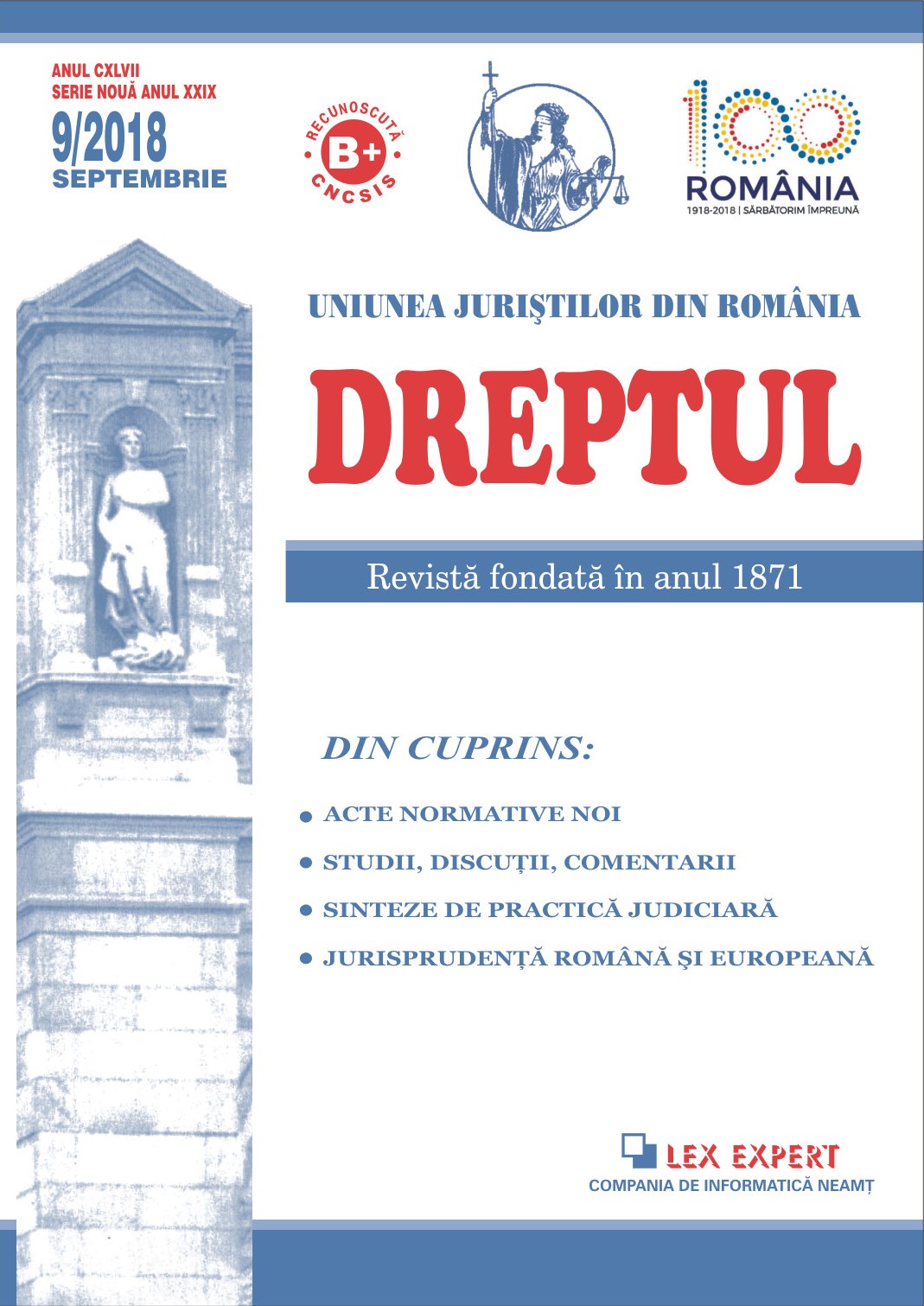Aspecte privind verificarea înscrisurilor și calitatea de parte sub imperiul noului Cod de procedură civilă. Propunere de lege ferenda privind extinderea motivelor de revizuire
Aspects concerning the verification of documents and the quality of party under the influence of the new Civil Procedure Code. De lege ferenda proposal on the extension of the grounds of revision
Author(s): Emilian LipcanuSubject(s): Law, Constitution, Jurisprudence
Published by: Uniunea Juriștilor din România
Keywords: the old Civil Procedure Code; the new Civil Procedure Code; quality of party; processual quality; denial of signature; invoking the lack of quality of party directly in the means of appeal;verification;
Summary/Abstract: In this study, the author brings back to memory a doctrinal discussion, inspired by the decision of a tribunal (seized as a court of judicial control), published by the „Romanian Journal of Law”, in two issues, in the period between 1983 and 1984, a discussion in which its protagonists, accepting the idea of an extensive interpretation of the provisions of the old Civil Procedure Code regarding the procedure of verification of scripts, concluded that this procedure may also cover the application for summons, in case that one of the applicants claims that he did not initiate the trial, the signature on the application is not his, nor did he mandate his brother (the co-applicant) to initiate the trial in his name. The doctrinaires have reached, in illo tempore, to the conclusion that the denial of the signature on the application for summons by the person to whom the document is attributed, in fact challenging of the quality of party to the trial, as an applicant, may be invoked, for the first time, also in the means of appeal, the court of judicial control following to submit the application for the procedure of verification of scripts. The tribunal has appreciated that the verification of the signature on the application for summons could only be made by its indictment as false and sending the case to the prosecutor. This point of view was not accepted by the person filing the recourse who considered that the proof of his statements could also be made through a procedure of verification of scripts of the document, before the civil court (which could order, if necessary, a graphological expertise to be made), not wanting to expose his brother, or himself, to criminal investigations. The fact that the second author involved in the discussion claimed the lack of consistency of the claim that the person filing the recourse has not acquired the quality of party (namely of appellant), since he could only exercise the recourse as a party (and not as a third party), has offered the occasion to the last two authors participating in the doctrinal discussion to make the distinction between the quality of party to the trial and the processual quality. The author of this study extends and goes deeper into the research, by reference to the new Civil Procedure Code, which essentially includes, with regard to the verification of documents (term used by this normative act to designate the same procedure), provisions similar in content to the old Civil Procedure Code, expressing and arguing the opinion that the verification of documents may concern, besides the probative evidence, traditionally subject to this procedure, any application of seizing the courts (courts of first instance, tribunals, courts of appeal, etc.), whether the circumstance would contain or not probative mentions. The author notes that the „traditional” extensive interpretation of the provisions concerning that procedure (established, in terminis, for the private signature documents) was limited by the requirement that documents subject to verification, whether they are private signature documents or not, be probative evidence or documents containing probative mentions. The research of some provisions in the new Civil Procedure Code determines the author to note the existence of a discrimination, in the sense that while some categories of persons interested in challenging their quality as a party to the trial (detached from the processual quality) have at their disposal a means of appeal in which to invoke the lack of quality as party, other persons (some categories of appellants and of persons filing the recourse) are deprived of the existence of this processual means. This is the reason for the author to make a de lege ferenda proposal aimed at extending the reasons for revision.
Journal: Revista „Dreptul”
- Issue Year: 2018
- Issue No: 09
- Page Range: 56-72
- Page Count: 17
- Language: Romanian
- Content File-PDF

